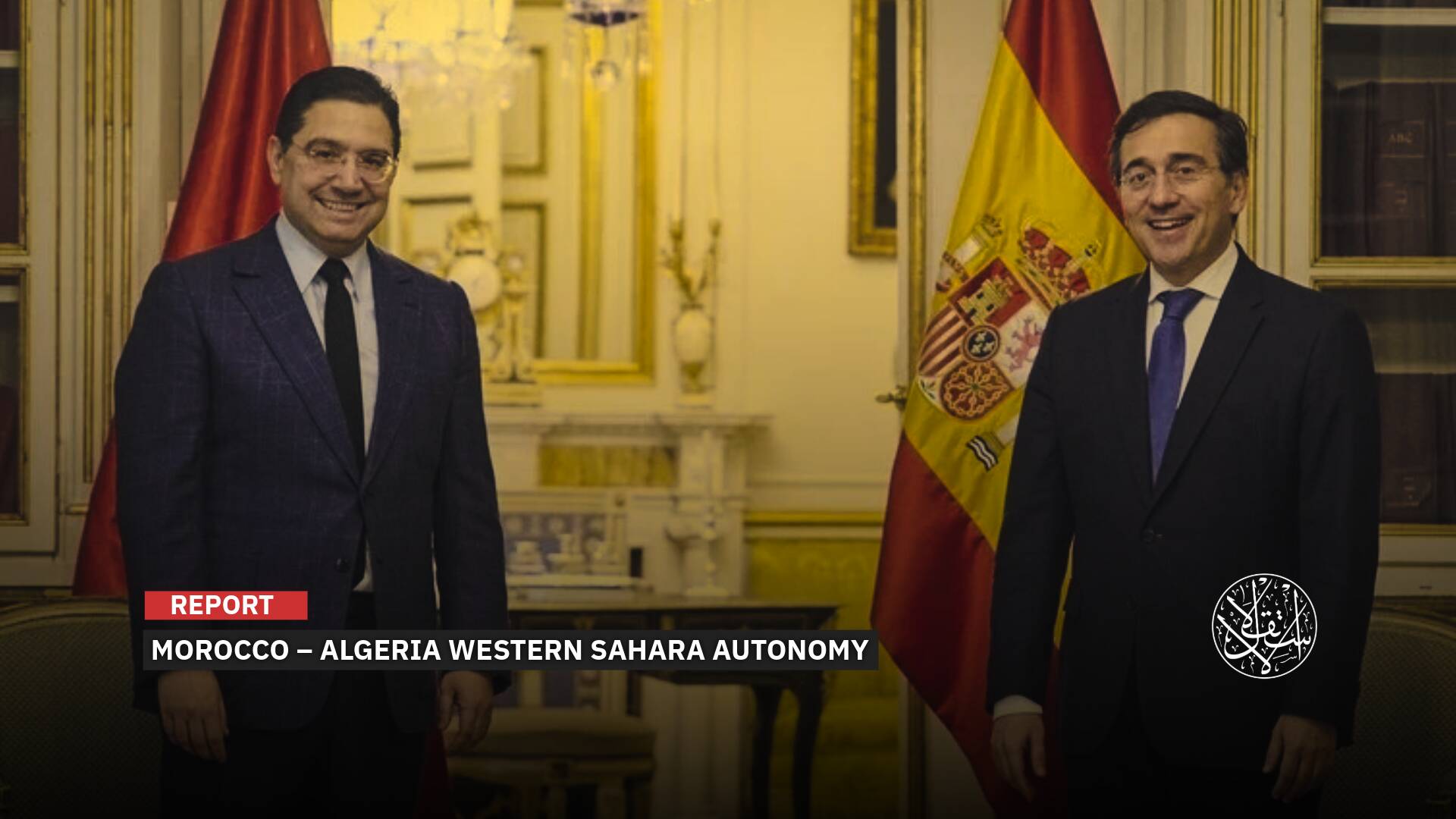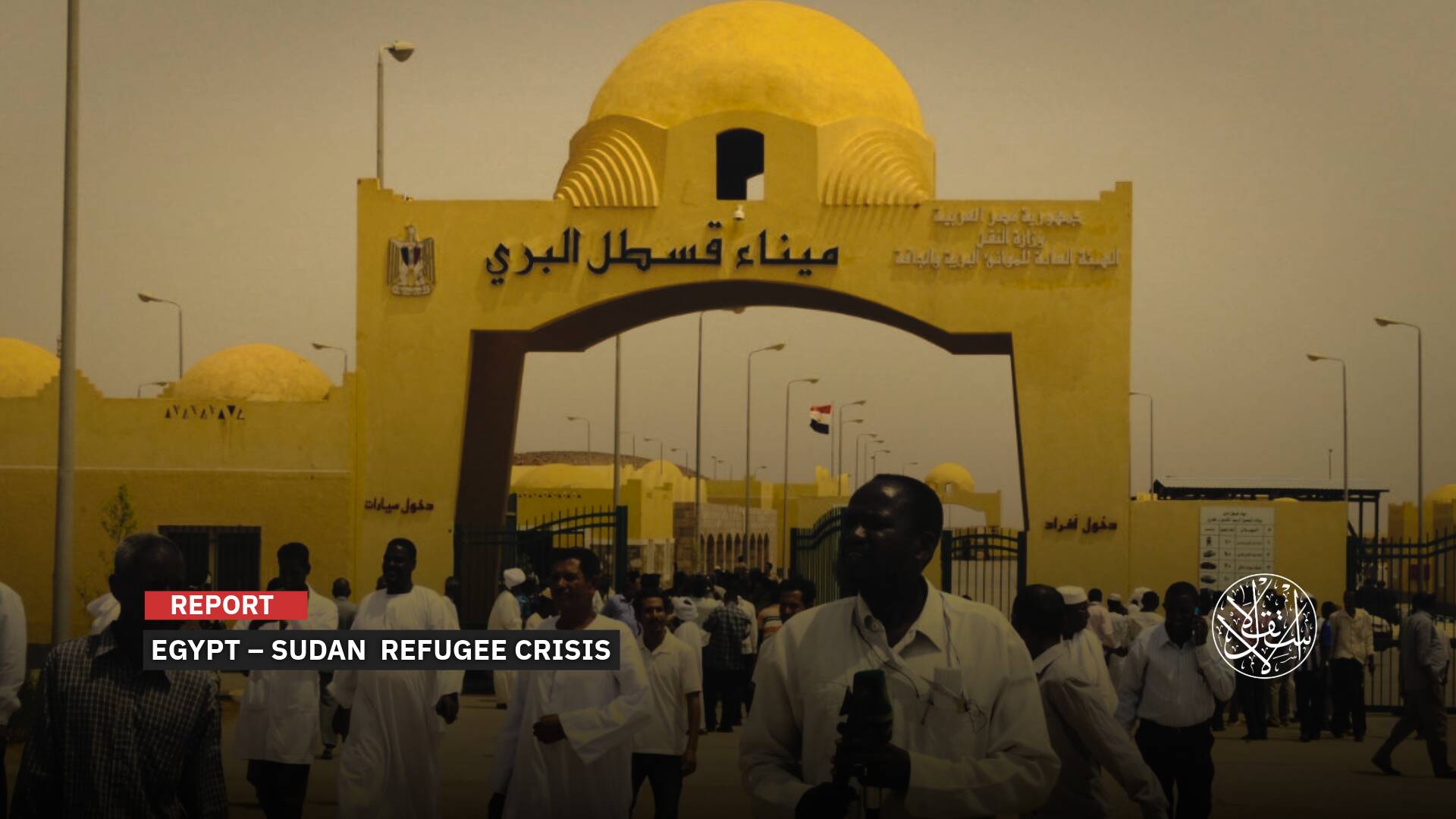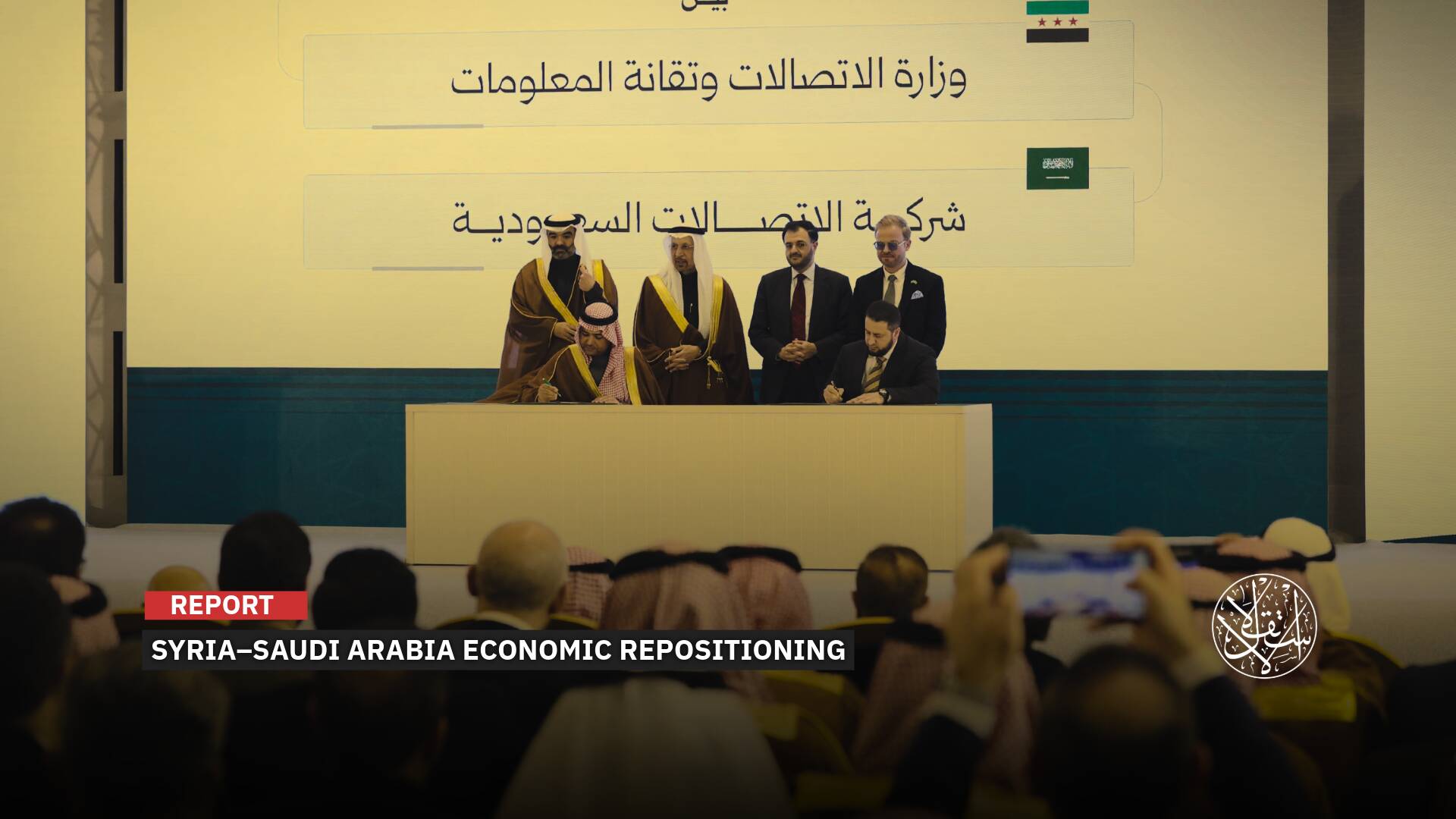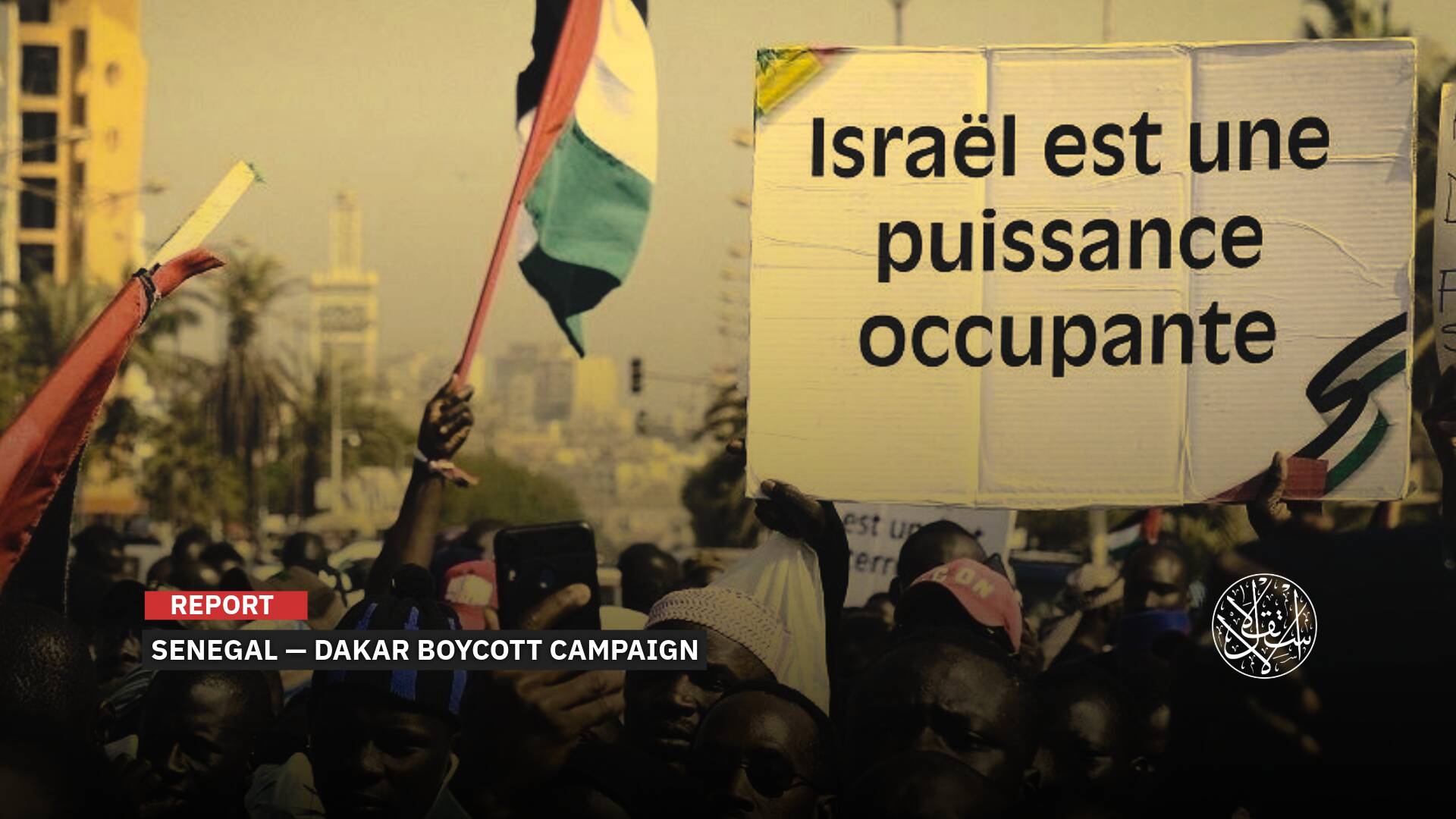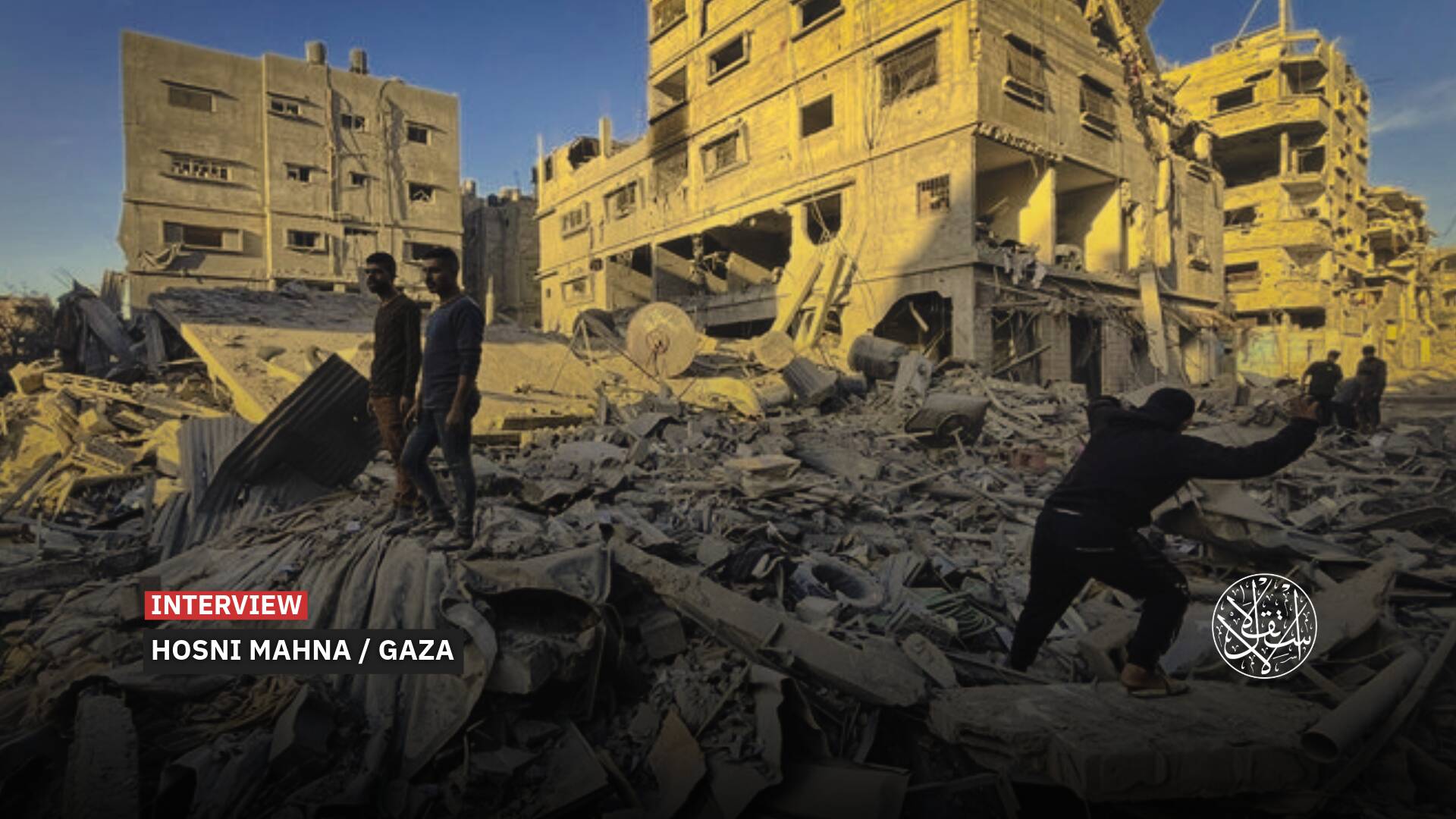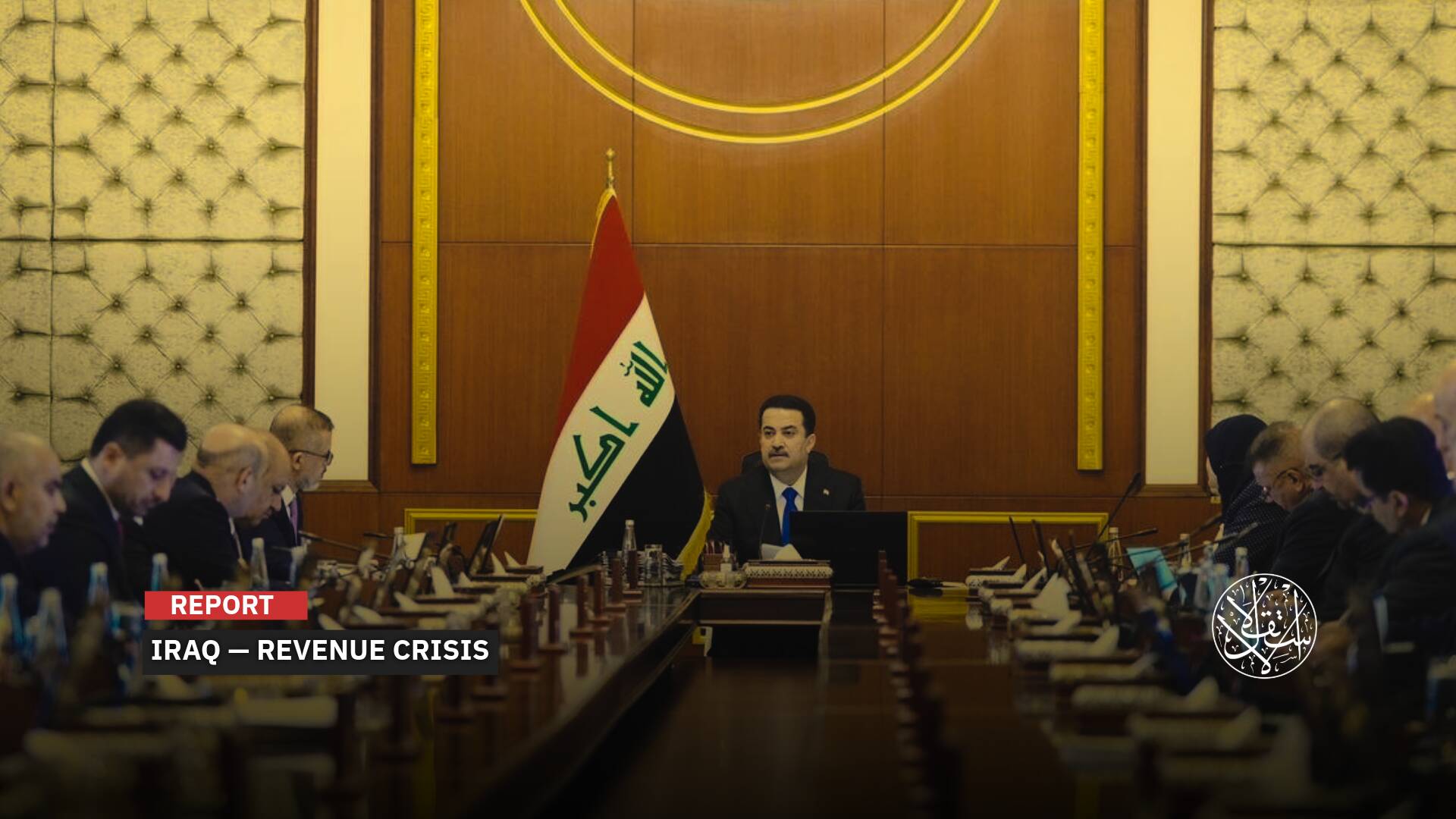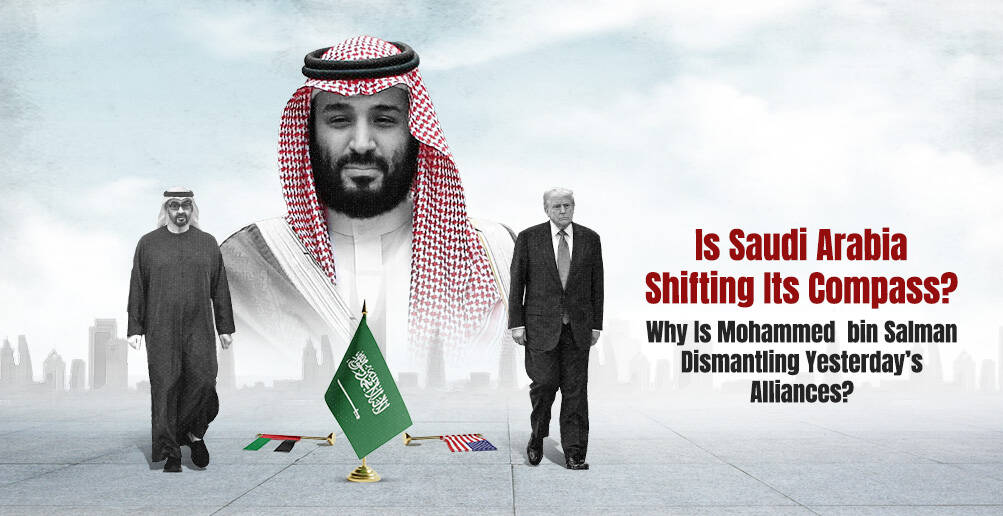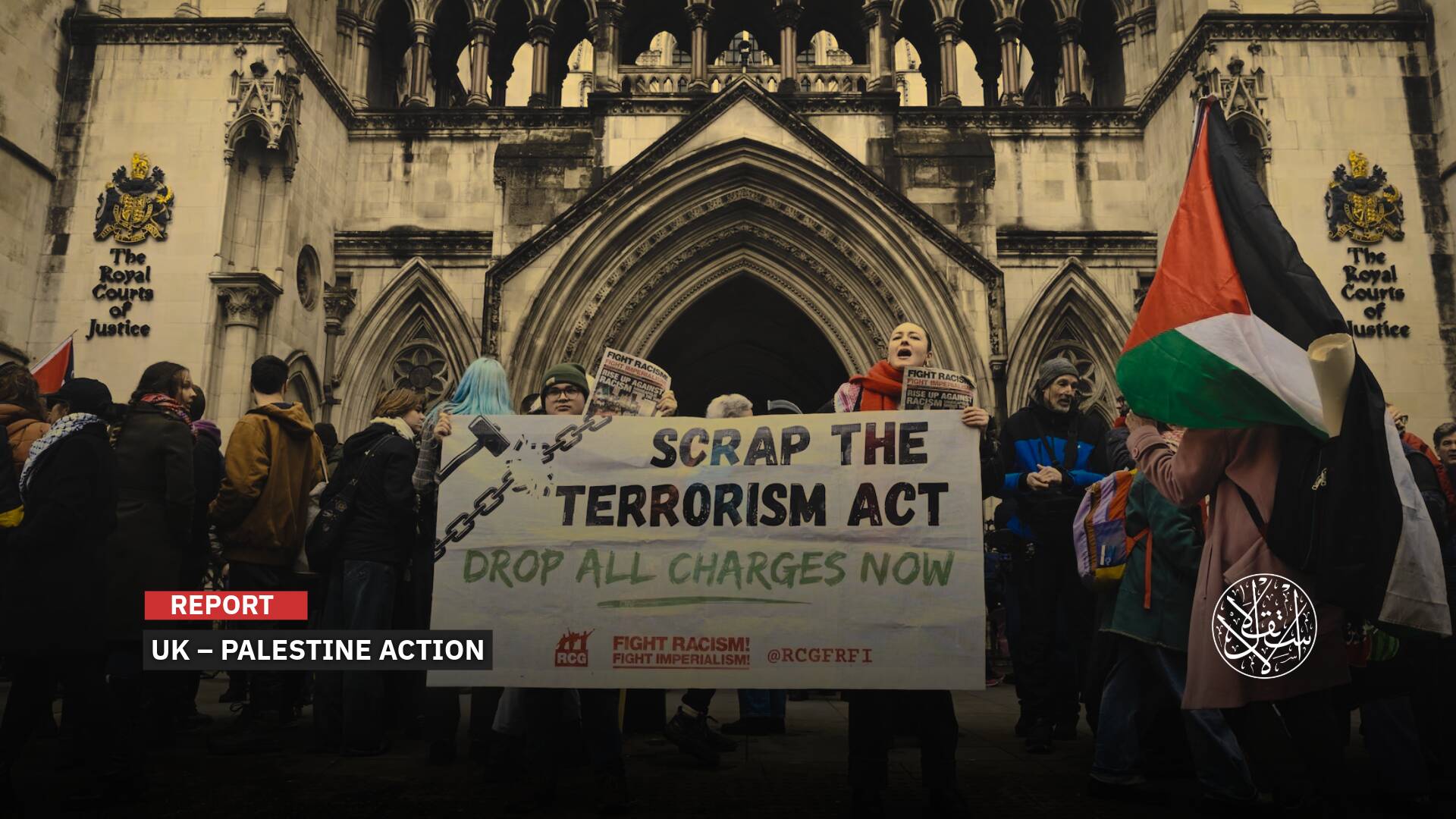Moroccans’ Loss of Trust in Akhannouch’s Government: What It Could Mean for the 2026 Elections

More than 61% of people disapprove of the Moroccan Prime Minister’s performance.
A steady stream of public opinion polls continues to paint a bleak picture for Moroccan Prime Minister Aziz Akhannouch, as confidence in his leadership erodes at an alarming rate.
The latest findings, which echo conclusions previously drawn by official bodies such as the High Commission for Planning (HCP), reinforce a growing sentiment of political disillusionment among Moroccan citizens.
The tenth round of the Afrobarometer survey in Morocco reveals striking figures that lay bare public perceptions of the country’s political institutions.
Trust in key actors—including the Prime Minister, parliament, and local councils—has taken a noticeable hit, with Akhannouch himself emerging as a particularly prominent casualty of declining faith in the political class.
The survey, conducted in February 2024 and published on May 21, 2025, drew on a representative sample from across Morocco’s diverse regions, capturing a spectrum of public attitudes toward the country's pressing political issues.
When it comes to trust in Prime Minister Akhannouch, the results were particularly stark: 37.9% of respondents said they had no trust in him whatsoever, while a further 27.7% said they trusted him only a little.
According to the survey, 21.4% of respondents said they trusted Akhannouch somewhat, while just 10.2% expressed a great deal of trust in him.
Meanwhile, 2% said they didn’t know, and 0.7% declined to answer altogether.
As for evaluations of his performance, the verdict was similarly critical. Some 32.2% said they completely disapproved of his performance, with an additional 29.7% saying they somewhat disapproved.
On the other end of the scale, 26.8% voiced their approval, while only 3.3% said they were entirely satisfied with his performance.
A further 4.7% said they were unsure how to assess his leadership, and 3.4% chose not to respond.
The findings make one point abundantly clear: disapproval of the Prime Minister’s performance (over 61%) far outstrips public support (around 30%).
The remainder—those who responded with “don’t know” or declined to answer—suggests a segment of the population caught between confusion and apathy.
The survey also offered a surprising twist in the political landscape: the Istiqlal Party, a junior partner in the governing coalition, emerged as the frontrunner in voting intentions—albeit with a modest 4% backing.
All this unfolds as a significant portion of Moroccan voters remains either undecided or openly planning to boycott the upcoming parliamentary elections, expected to take place within the next year.
The survey revealed that 33.8% of respondents remain undecided about which party they would support—an uncertainty that is more pronounced in rural areas, where the figure climbs to 38.5%, compared to 31.5% in urban centres.
Following the Istiqlal Party, which topped the list, both the Party of Authenticity and Modernity (PAM)—a government ally—and the opposition Justice and Development Party (PJD) garnered equal support, each receiving 3.8% of voter backing.
The National Rally of Independents (RNI), which won the 2021 elections and currently leads the government, slipped to fourth place with just 3.2% support.
As for the rest of the political field—including the Socialist Union of Popular Forces, the Popular Movement, and the Party of Progress and Socialism—support hovered between a mere 1% and 2%, underscoring the broader fragmentation and voter disillusionment across the political spectrum.
Political Analysis
Reacting to the survey findings, Abdelaziz Aftati—a senior figure in the opposition Justice and Development Party (PJD) and former member of the parliamentary Finance and Economic Development Committee—argued that the reported 65.5% mistrust in Akhannouch falls well short of the deeper reality that is gradually coming to light.
Speaking to Al-Estiklal, Aftati attributed the slow pace of this political unmasking—and the persistence of what he called a “false narrative,” despite its current trajectory—to the extensive misinformation that has accompanied what he described as a state-led reversal of Morocco’s democratic transition.
This “coup,” as Aftati described it, took place on September 8, 2021, when what he terms the “commeradors”—a pejorative label for those who have amassed vast wealth through dubious inheritance or parasitic opportunism—were deployed as instruments in the upheaval.
The 2021 parliamentary elections marked a dramatic shift in Morocco’s political landscape, with the Justice and Development Party (PJD) plummeting from its previous dominant position of 125 seats in the 2016 elections to a mere 13 seats, falling to eighth place in the latest vote.
Meanwhile, Akhannouch’s party, the National Rally of Independents (RNI), surged to the forefront amid accusations that the Ministry of the Interior had backed the party’s rise while orchestrating the downfall of Saad dine el Otmani—then Prime Minister and secretary-general of the Justice and Development Party.
The election results prompted el Otmani and the party leadership to resign, paving the way for Abdelilah Benkirane to take over in an extraordinary party congress at the end of 2021.
َAbdellah Bouanou, the Justice and Development Party’s campaign chief, revealed in media statements that forces within the authorities and the Ministry of the Interior applied both carrots and sticks to pressure their candidates into withdrawing their bids under the party’s banner, reducing the number of candidates from 16,000 to half that figure.
He also asserted that recent amendments to the electoral law were aimed squarely at undermining the Justice and Development Party, including the removal of the “threshold” — the minimum vote share required to secure seats.
This threshold represents the minimum share of votes a party must secure by law to be eligible for any parliamentary seats.
Additionally, the changes included counting votes based on the number of registered voters rather than valid ballots cast, holding parliamentary and municipal elections on the same day despite their differing nature, and withholding the delivery of voting records from candidates, among other irregularities.
Aftati explained that, following the events of those elections, democratic reform bodies—including the Justice and Development Party—became direct targets.
He also highlighted the tight clampdown on the media through widespread acquisitions and co-optation, leaving only a few exceptions: independent voices that resisted both manipulation and the trade-off of political influence for money.
Aftati believes it is “entirely natural” for the public to express widespread and measured condemnation of what he calls the “catastrophic and resounding failure” of Akhannouch’s government and its allies in what he terms the alliance of regression and macro-corruption on the democratic front.
“This extends to economic and financial spheres, where control over wealth, economic rents, and their sources is concentrated in the hands of a limited number of family alliances closely linked to the political blocs that govern this era—blocs desperately clinging to power through corruption,” Aftati said.

Dire Consequences
Aftati stressed that this situation has had dire consequences, resulting in the monopolization of what limited growth opportunities exist.
Economic growth barely reached an average of 2.8% between 2022 and 2024—well below the government’s promised target of 4%, and far weaker than the 6% growth envisaged in the new development model for 2025.
It has also resulted in the impoverishment of the vast majority of the population, a shrinking middle class, and a surge in unemployment.
Unemployment for 2024 stands at approximately 13.3% according to the official periodic and annual calculation method, but rises to around 21.3% when measured by the population census approach—considered more accurate.
Moreover, unemployment continues to rise at an unprecedented rate, coupled with a decline in labor force participation—particularly among women, with figures at 19% in 2024, though the latest census suggests the real rate is closer to 16.8%—all of which runs counter to the government’s claims.
The former parliamentarian also noted what he described as the relentless escalation of living costs, now entering its fourth consecutive year since the current government took office in 2021, with price hikes affecting virtually every essential food item and basic service.
Aftati argued that the survey results also reflect the fact that Moroccans were deprived of fully celebrating Eid this year, following the cancellation of traditional animal sacrifices due to the failure of the Ministry of Agriculture’s Green Plan across all its sectors—including its goal of achieving self-sufficiency in red meat.
King Mohammed VI had urged citizens to refrain from slaughtering sacrificial animals this year, citing severe shortages in the local livestock population.
In a symbolic gesture, only two sacrifices were carried out: one on behalf of the royal family, and another on behalf of the people.
Aftati accused the Prime Minister of enriching himself from the agricultural sector during his more than 13 years as Minister of Agriculture, along with close associates, by capturing the lion’s share of public subsidies allocated to the sector.
He pointed to the government’s allocation of $1.3 billion for the importation of meat and sheep—a move that has had no discernible impact on lowering prices for consumers at home.
These allocations have been the subject of parliamentary scrutiny, yet the government continues to refuse compliance or to provide answers regarding their use.
“Akhannouch also misled Moroccans by promoting claims of herd growth between 2008 and 2018 in two official documents published that year,” Aftati noted.
He explained that this was strongly contradicted by the severity of the crisis revealed by Akhannouch’s current Minister—or deputy minister—of Agriculture, Ahmed el Bouari, who disclosed a 38% decline in livestock numbers starting from 2016, with continued decreases through to 2024.
Aftati posed a pointed question, “Given this situation, whom should we believe now—the minister or his principal? And what consequences should follow for misleading Moroccans with false and fabricated data? What accountability awaits those who colluded in this deception, as well as those who covered it up, betraying both the state and society?”
The Afrobarometer survey, which projected Akhannouch’s party slipping to fourth place, was seen by the academic and former parliamentarian Abdelaziz Aftati as a partial reflection of this growing public disillusionment.
Aftati noted that these projections reveal how, at least in part, the public was a victim of widespread misinformation during 2021.
He warned that the decline affects all three parties forming the current government: the Authenticity and Modernity Party, which the state established in 2008 and 2009 to dominate the political landscape; the Independence Party, which has aligned itself with regression; and, of course, Akhannouch’s National Rally of Independents.
Aftati argued that the waning enthusiasm to vote for Akhannouch’s allies in the present government is entirely natural and consistent with sound democratic principles—recognizing that responsibility, for both success and failure, is shared, and that this accountability is only possible when citizens exercise their electoral choices with integrity, freedom, and transparency.
“Therefore, if there is success, it is shared collectively among the coalition partners, albeit to varying degrees. Conversely, when failure occurs, responsibility is likewise joint and shared among the bodies leading the experiment,” Aftati added.
Regarding the role of the Ministry of the Interior in ensuring that citizens can express their will freely in the 2026 elections, without interference or manipulation, Aftati remarked that this responsibility does not rest solely with these authorities, describing them merely as an executive instrument of the state’s decisions.
“The point here is that the state is obligated to uphold the constitution, to guarantee the sanctity of the ballot as the embodiment of the people’s sovereign authority, and to cease interfering in the affairs of constitutional institutions and political parties, or discriminating among them through authoritarian means.”
“Therefore, responsibility lies both with the state on one hand, and with political actors on the other, who must speak out clearly and reject any infringement on the integrity of the electoral process,” Aftati continued.
The Story Behind the Decline
Abdelilah Dahman, deputy secretary-general of the National Labor Union of Morocco, affirmed that the survey results reflect the clear social decline witnessed in the kingdom during Akhannouch’s government tenure since 2021.
Foremost among these challenges are rising unemployment rates, worsening poverty, dwindling household confidence in the economic future, and the closure of a significant segment of small and medium-sized enterprises.
“There has also been a stumbling block in the rollout of universal social protection, with millions of Moroccans still lacking comprehensive health coverage, alongside emerging financing challenges for the program,” Dahman told Al-Estiklal.
“The erosion of purchasing power, the loss of food sovereignty, a hemorrhage of jobs, the deterioration of trade union freedoms, and other pressing social issues.”
“What is most alarming is that these indicators come amid a complex global economic context, compounded by the limited effectiveness of government public policies in addressing deep-seated structural imbalances,” Dahman added.
Dahman also criticized the current government’s failure to build on previous social measures, such as extending health coverage to eight million disadvantaged Moroccans under the former RAMED scheme.
He said this has resulted in a weak impact on poverty and vulnerability, despite claims of social protection reforms.
He went on to note that 3.2 million Moroccans have slipped into poverty since the Covid-19 pandemic, underscoring the limited real-world effectiveness of the programs implemented and the outcomes of social dialogue.
“The social situation in Morocco under Akhannouch’s government reveals a clear gap between the rhetoric and the social policies pursued, and the actual commitments, outcomes, and impact,” Dahman continued.
“This underscores the urgent need to redirect the dialogue towards a more comprehensive approach grounded in social justice, ensuring tangible improvements in citizens’ livelihoods, especially during these challenging times.”
Dahman highlighted a series of stark social indicators under the current government. Unemployment in Morocco has surged, with 1.638 million people now out of work, pushing youth unemployment (ages 15–24) to a staggering 36.7 percent.
He also noted that approximately 3.2 million Moroccans have fallen into poverty or social vulnerability during Akhannouch’s tenure.
According to Dahman’s estimates, the poverty rate has risen from 1.7 percent before 2021 to 4.9 percent since.

Negative Indicators
The issue of dwindling confidence in Akhannouch’s government has been a focal point for the High Commission for Planning (HCP), Morocco’s official statistics agency, which has addressed it in several reports and briefs.
Among these is the ongoing Household Conditions Survey for the first quarter of 2025.
On April 24, 2025, the HCP revealed that 53 percent of households anticipate a decline in their living standards over the next 12 months, while 40.3 percent expect conditions to remain stable.
Only 6.7 percent foresee any improvement, according to Iktissadkom.
Thus, the same source reported that the index settled at a negative 46.3 points, compared to -46.1 points in the previous quarter and -47.3 points in the same period of 2024.
During the first quarter of 2025, 80.9 percent of households said their living standards had deteriorated over the past 12 months, while 14.7 percent felt conditions had stabilized and just 4.4 percent reported an improvement.
The index for this indicator remained deeply negative at -76.5 points, slightly down from -76.2 points in the previous quarter and -78.1 points in the corresponding quarter of 2024.
The recent negative indicators of government performance have extended beyond public trust to impact Morocco’s rankings in both the Global Happiness Index and international governance indicators.
In March 2025, Morocco was placed 112th globally in the World Happiness Report for 2025, reflecting a marked decline in citizen satisfaction and wellbeing amid worsening economic and social conditions.
This downturn underscores an urgent need for immediate measures to improve quality of life and bolster the welfare of the population.
The quality of life index reflects the overall wellbeing of individuals within a society, drawing on factors such as health, education, living standards, access to essential services like water and electricity, as well as social and political stability.
In this context, Akhannouch’s government has witnessed a notable decline in the 2025 Good Governance Index published by the Chandler Institute of Governance.
Morocco ranked 75th out of 120 countries featured in the report, slipping five places compared to the previous year—an indicator of waning public confidence and governance challenges.
According to the report by the Singapore-based International Institute, Akhannouch’s government scored just 0.466 out of 1, placing it in the bottom third of the global rankings — trailing behind smaller African nations such as Rwanda, Botswana, and Mauritius.
The rankings also highlighted Morocco’s significant decline across key governance indicators.
The kingdom ranked poorly in education quality, coming in 97th; in empowering citizens to improve their lives, at 85th; strong institutions, 87th; citizen satisfaction with public services, 103rd; employment rates, 109th; and gender equality, languishing at 112th.
Akhannouch’s government continued to register weak performances across several other critical indicators, including property rights protection, ranked 83rd; investment attraction, 73rd; laws and policies, 76th; transparency, 92nd; income distribution, 83rd; and budget surplus, 85th.
Taken together, these figures reveal deep structural imbalances that hinder Morocco’s international standing on governance and economic transparency, especially amid challenges posed by budget deficits and slowing growth.
The rankings also raise serious questions about the government’s commitment to providing accurate and transparent information regarding public policies, budget allocations, and public procurement, further widening the trust gap between citizens and institutions.
Sources
- Akhannouch’s government slips in the 2025 “Good Governance” index, shedding the fig leaf of “competence” [Arabic]
- More than half of Moroccan households expect a decline in living standards despite an improved confidence index [Arabic]
- Opinion poll: Istiqlal, PAM, and Justice and Development parties lead voting intentions for 2026 amid ongoing voter apathy [Arabic]
- Summary of the Afrobarometer Round 10 Survey Results in Morocco [French]


